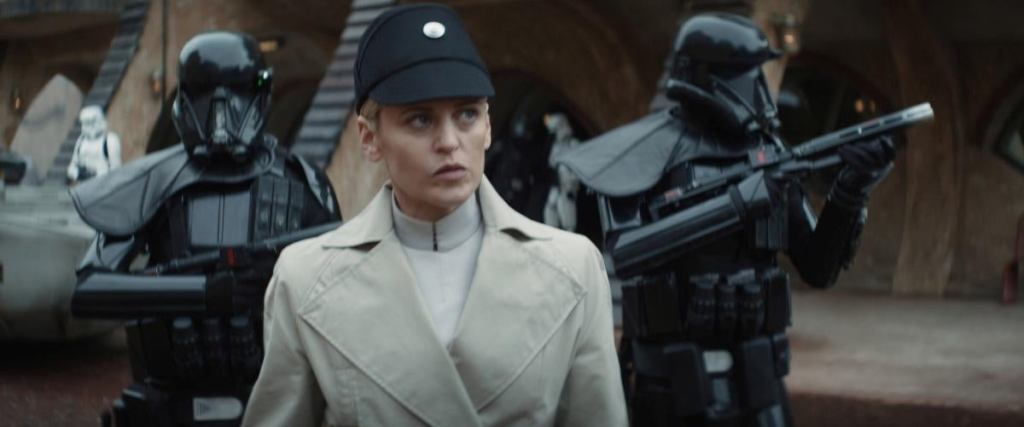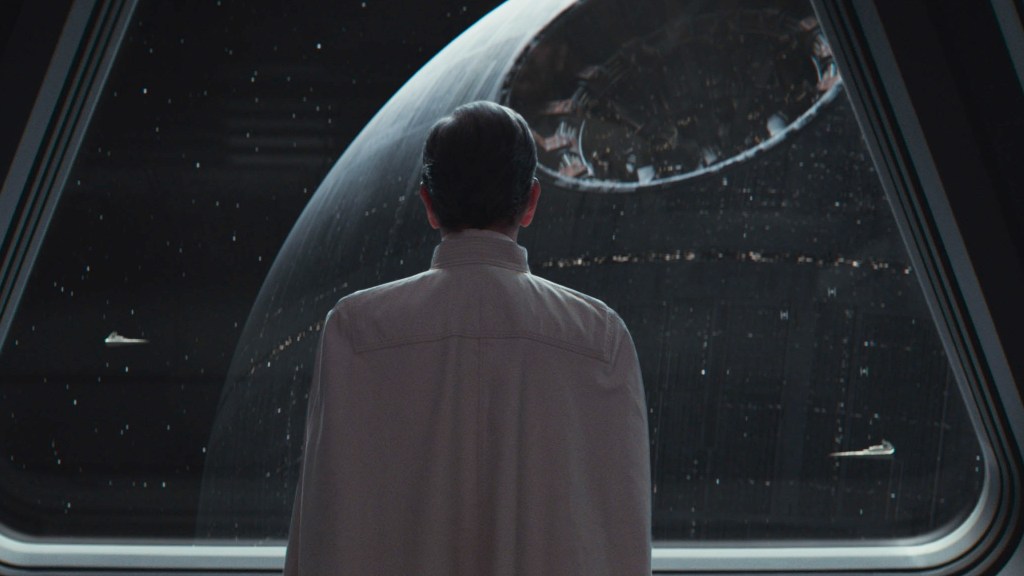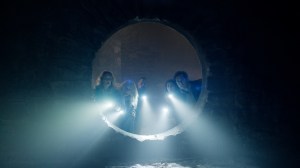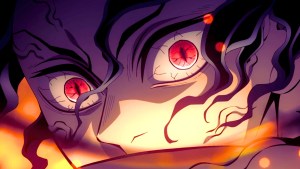The quiet brilliance of Andor has always been its commitment to the grim realities of Imperial occupation, illustrating the terrible and heartless nature of fascism through the eyes of both the oppressed and the oppressors. For two seasons, viewers witnessed Cassian Andor’s gradual radicalization against a backdrop of increasing Imperial tyranny, but perhaps no character’s journey has been as chillingly complete, or as ironically tragic, as that of Imperial Security Bureau (ISB) Supervisor Dedra Meero. Her relentless ambition, her unwavering belief in the Empire’s order, and her almost clinical dedication to hunting down perceived threats made her a nigh unbeatable antagonist.
Videos by ComicBook.com
Yet, in a final, stunning twist of fate in the series finale, the very system Dedra upheld with such steadfast devotion delivered a punishment more fittingly cruel than any Rebel could have devised, cementing her as one of Star Wars‘ most profoundly tragic and complex villains.
The Empire’s Cannibalistic Nature Makes Dedra Meero the Architect of Her Own Demise

Dedra Meero’s trajectory throughout Andor Season 2 was a slow, agonizing descent into the very chaos she sought to control. Her obsession with dismantling Luthen Rael’s network and her singular focus on “Axis” led her down increasingly perilous paths, blurring the lines of procedure and pushing the boundaries of what was permissible, even for the ISB. The Ghorman Massacre, a horrific act of Imperial brutality that she not only suggested but helped facilitate, left Dedra visibly shaken but ultimately undeterred. If anything, it seemed to steel her resolve, perhaps out of a twisted sense of responsibility or a desperate need to justify the atrocities committed in the name of order. Her final, ill-fated confrontation with Luthen, an unsanctioned attempt to capture him fueled by personal vendetta and a hunger for glory, proved to be her ultimate undoing.
Dedra Meero was, in every sense, a product of the Empire she so fiercely served. Raised in an Imperial “Kinder-block,” her life was meticulously shaped by its doctrines of order, control, and absolute obedience. Her exceptional intelligence and unwavering dedication saw her rise through the ranks of the Imperial Security Bureau, becoming a shining example of the system’s ability to forge utterly loyal, utterly ruthless instruments of its will. She believed in the Empire with a fervent, almost religious zeal, seeing it as the ultimate defense against galactic anarchy. Yet, the series finale brutally demonstrated that the Empire, in its insatiable hunger for control and its paranoid fear of any perceived weakness, is inherently cannibalistic.
RELATED: 5 Great Concepts for More Star Wars TV Shows on Andor’s Level
During her time on Ghorman, Dedra was inadvertently forwarded highly classified information about “Project Stardust,” the very existence of the Death Star. In her arrogance and conviction, she believed she could manage this sensitive intelligence, using it to her advantage in her personal crusade. However, the Empire cares nothing for individual ambition or loyalty once a liability arises. Her unauthorized access, coupled with the revelation that her peer, Lonni Jung (a double agent for the Rebellion), had exploited her clearance codes for months, painted her as a catastrophic security risk. Director Orson Krennic, a man whose own ambition mirrors Dedra’s, but whose position grants him untouchable authority, delivered the crushing verdict. The scene where he forces her to utter the words “Death Star” is chilling, not just for the ominous power of the name, but for the utter humiliation and existential dread in Dedra’s eyes. She had dedicated her life to building this Empire, to perfecting its systems of control, only to have those very systems turn on her without a shred of hesitation or remorse. It was a stark reminder that in the Empire, there are no allies, only tools, and once a tool is perceived as broken or compromised, it is discarded.
Her meticulously constructed world of order crumbled, replaced by the arbitrary, self-serving brutality that she had championed. Her intelligence and drive, once her greatest assets, became the very instruments of her downfall, proving the twisted reality that in the Empire, even the most loyal can be devoured.
Dedra Faces a Poetic, Industrial Irony as She is Forced to Feed the Beast That Will Consume Them All

The ultimate, deeply twisted irony of Dedra Meero’s fate is revealed in the series’ closing montage. Stripped of her rank, her authority, and her meticulously crafted identity, she is seen in an Imperial labor prison, visually and functionally similar to Narkina 5, where Cassian Andor himself suffered in Season 1. The visual parallel is intentional and devastating. Where Cassian found camaraderie and a spark of rebellion in the dehumanizing conditions of the prison, Dedra is utterly isolated, a solitary figure weeping in the dimly lit confines of her cell. The final gut punch, however, comes with the revelation that she is now contributing to the very project that sealed her doom: she is making parts for the Death Star.
This is a fate far more insidious than mere execution. To be imprisoned by the system she championed and adored, to be forced to labor on the very weapon that symbolizes its ultimate, ruthless power and her downfall, and to do so in a facility reminiscent of the one that held the very Rebel she once obsessively hunted, is the epitome of poetic justice. Dedra, who reveled in control and hierarchy, is reduced to a number, her intellect and drive channeled into the most mundane and dehumanizing of tasks. She is literally building the physical representation of the Empire’s terror, the very expression of the power she coveted, now as a cog in its machinery rather than a guiding hand. The fact that she accidentally stumbled upon the Death Star’s existence, a discovery that directly contributed to her imprisonment, only amplifies the bitter taste of this irony. She was intelligent enough to deduce the truth behind Project Stardust, ambitious enough to try and leverage that knowledge, and ultimately, a victim of the very paranoia inherent in the Empire’s secrets.

Her fate also serves as a chilling foreshadowing for the audience. We know the Death Star’s ultimate intended purpose – its destruction by the very Rebellion Dedra fought so hard to suppress. The image of Dedra, broken and alone, building components for a weapon destined to fail at the hands of the forces she despised, underscores the futility of her entire life’s work. She is trapped in a loop of self-defeat, unknowingly contributing to the eventual victory of her enemies. It’s a tragic, yet deeply satisfying, ending for an antagonist whose greatest strength was her unwavering belief in a system that ultimately consumed her. Dedra Meero’s final moments in Andor are not of heroic defiance or dramatic death, but of quiet, soul-crushing despair, forever making parts for a weapon whose terrible purpose and ultimate demise she will likely never witness; a prisoner of the very order she so desperately craved. It is a finale that twists the knife, leaving a lasting impression of the dark, self-destructive heart of the Empire.
Star Wars: Andor is streaming on Disney+.








